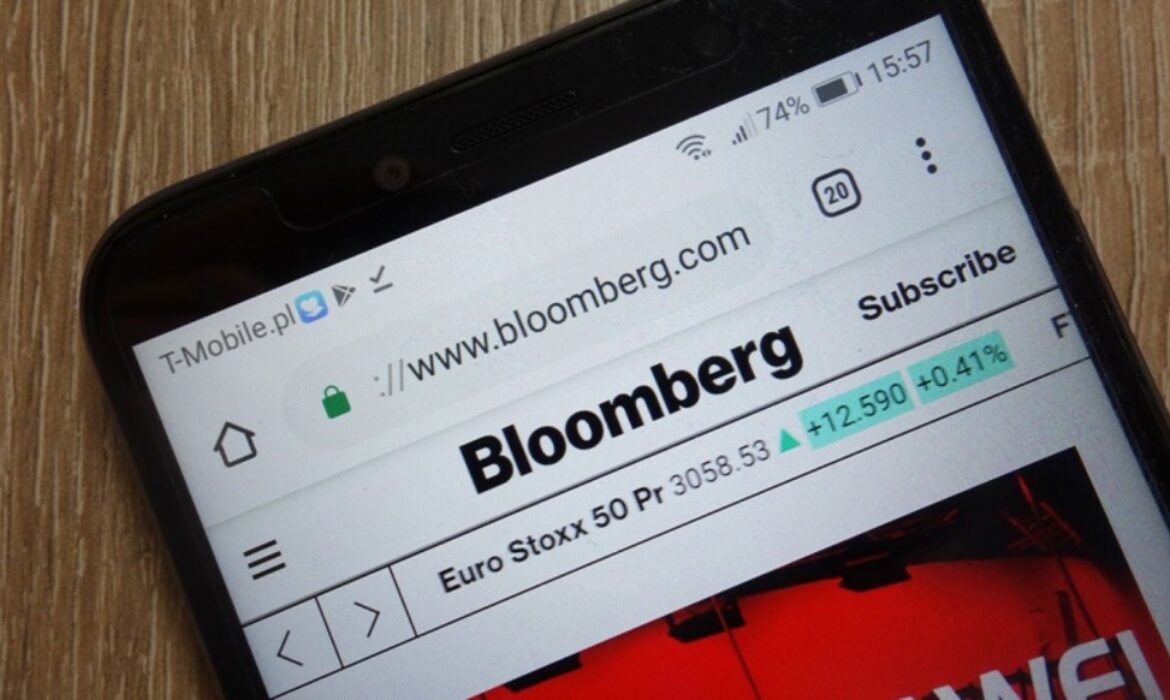Bloomberg Will Soon Stop Using Programmatic Ads And Here’s Why!
Bloomberg Media is closing its Open-Market third-party programmatic display ads operations from January 1, 2023. Adweek reports that it will stop serving on its website and mobile app. Publishers plan to stop using content recommendation services such as Taboola. They recommend products that divert visitors away from their website.
Why does the publisher want to stop these ads?
Bloomberg Media plans to focus on improving ‘user experience. A programmatic display ad on the open market is subject to quality assurance processes, which may also mean that is not in alignment with the brands’ objectives. Adweek reports that open-market ads only represent about 5% of the publisher’s inventory. As a result, a shorter-term ad revenue loss will be exchanged for long-term revenue gains.
However, the publisher is of the opinion that the improved user experience will result in more readership frequently and high consumption of content regularly. The newly available inventory will also be used for house ads for Bloomberg Media’s editorial products, including newsletters, podcasts, events, and television.
This decision will reduce its dependency on the open-web programmatic inventory as it is difficult to collect third-party data due to strict privacy regulations. Considering that programmatic represents only a small portion of inventory, the yield is heading into trouble. Therefore, there are new ways to monetize readers’ revenue, and eventually will change the outlook of many other publishers.
Interesting Read: The Ultimate A-Z Glossary Of Digital Advertising!
Future plans of Bloomberg Media
Bloomberg media already monetizes its digital advertising inventory via direct sales, private marketplaces, or even programmatic guaranteed deals. The open market third-party programmatic display ads are to fill the remnant inventory. This is particularly for the ad space that is unused or unsold. However, while dealing with third-party programmatic ads, Bloomberg Media does not have a strong hold on how and where ads appear affecting its premium readership.
In spite of this, cutting off programmatic advertising will inevitably lower short-term advertising revenue. The experiment will succeed if Bloomberg Media is able to compensate for that downturn with a subsequent increase in reader revenue. The in-house promotions and marketing will enhance reader awareness of the latest editorial products. The publisher will elevate the benefits of the offerings and distinguish the uniqueness of its exceptional reporting team. This will set them apart from competitors and increase the odds of customer return. Adweek quoted chief executive officer, Scott Havens,
“Historically, we have not leaned into promoting our authors, but now my belief is that to deepen engagement, we need to promote what makes us different.”
It will be interesting to understand how will this shift impact Bloomberg Media’srevenues and will the reader revenue be the new monetization way.
Interesting Read:The Journey From Deterministic To Probabilistic Marketing
Author Profile

- Neha Mehta
- Neha started her journey as a financial professional but soon realized her passion for writing and is now living her dreams as a content writer. Her goal is to enlighten the audience on various topics through her writing and in-depth research. She is geeky and friendly. When not busy writing, she is spending time with her little one or travelling.
Latest Posts
 Interview and Guest PostJuly 19, 2024Navigating Ad Tech: Equativ’s Jacqueline Chua’s Strategic Insights
Interview and Guest PostJuly 19, 2024Navigating Ad Tech: Equativ’s Jacqueline Chua’s Strategic Insights Interview and Guest PostJune 21, 2024CTV Exploration: Chandrahas Shetty, Demand Facilitation Lead, India, On Growth And Privacy
Interview and Guest PostJune 21, 2024CTV Exploration: Chandrahas Shetty, Demand Facilitation Lead, India, On Growth And Privacy Interview and Guest PostJune 14, 2024Advertising Evolution: Rasha El-Ghoussaini on Snap Inc.
Interview and Guest PostJune 14, 2024Advertising Evolution: Rasha El-Ghoussaini on Snap Inc. Interview and Guest PostJune 5, 2024Navigating Digital Waves: Shrenik Gandhi’s Journey with WRM
Interview and Guest PostJune 5, 2024Navigating Digital Waves: Shrenik Gandhi’s Journey with WRM








